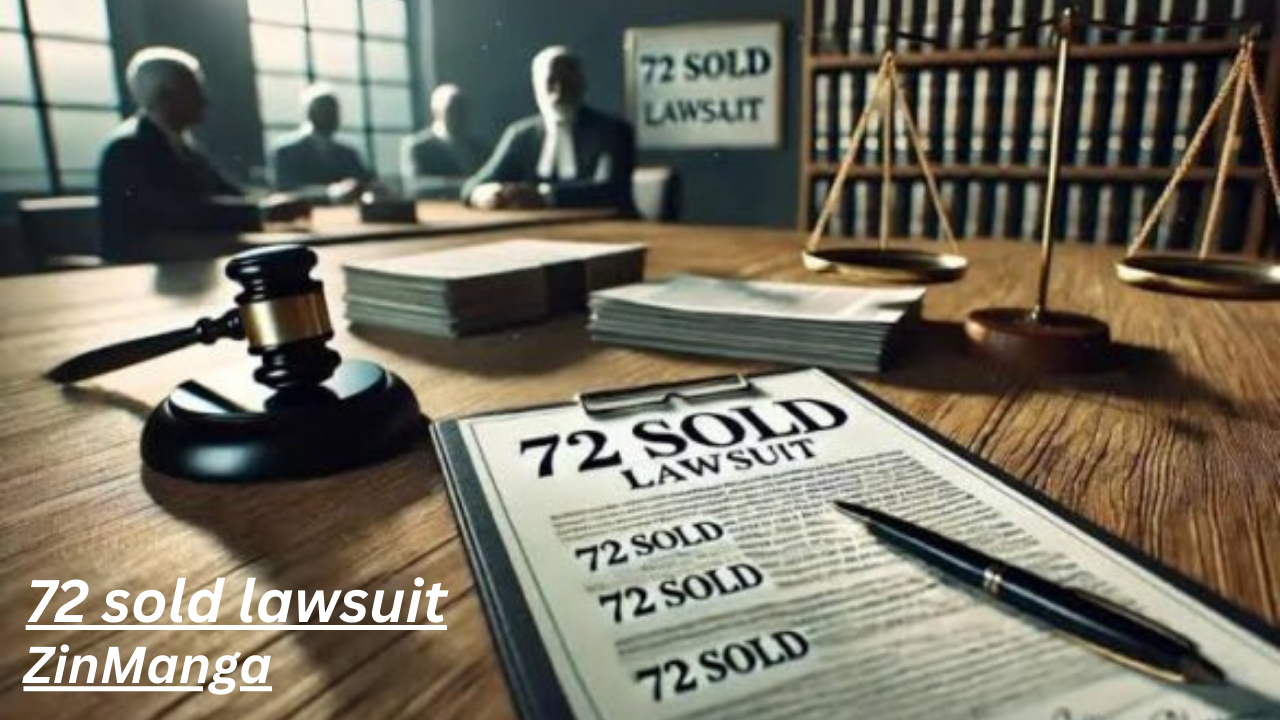Introduction
Recently, 72 sold lawsuit has become embroiled in a significant legal controversy. What began as a flourishing real estate enterprise is now under scrutiny due to a lawsuit that has raised questions regarding its operations and ethics. While the increased attention has benefited many real estate companies, it has also highlighted some questionable practices within the industry. The lawsuit against 72 Sold is at the forefront of this ethical debate, prompting discussions about its implications for the real estate sector.
In this article, we will explore everything you need to know about the 72 Sold lawsuit and its potential impact on the industry.
Table of Contents
Background on 72 Sold
72 Sold is a real estate consulting agency that gained prominence by offering a unique selling proposition aimed at homeowners eager to sell quickly. The company’s model promises to sell properties fast, allowing sellers to bypass the lengthy traditional real estate process.
Typically, traditional real estate methods involve listing a home with a local agent, who will arrange for professional photography and advertise the property on a multiple listing service (MLS). In return, agents usually charge a commission ranging from 4% to 6%, which is often split with the buyer’s agent.
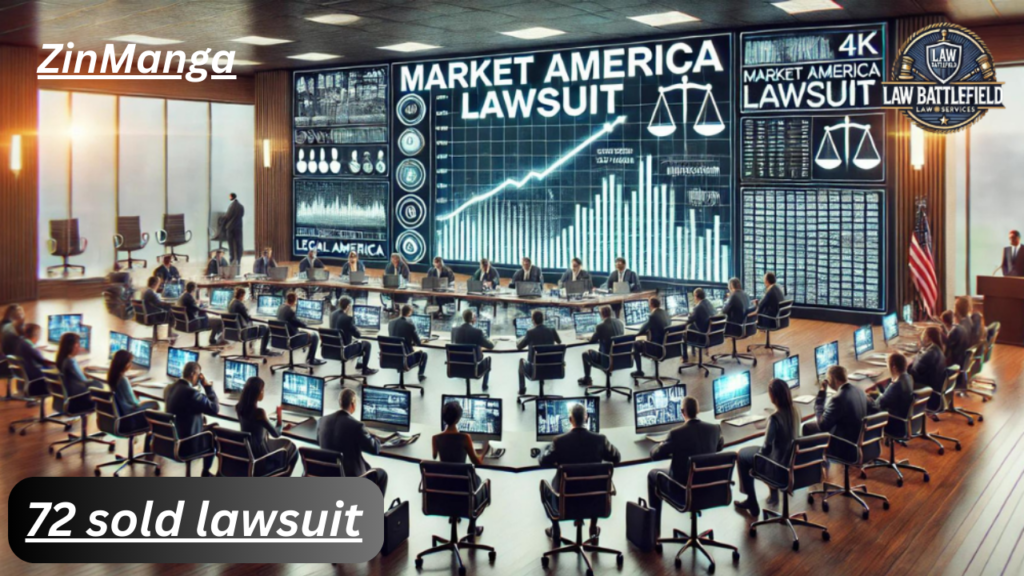
Initially, 72 Sold promised homeowners a sale in just 72 hours, building its entire brand around this commitment. However, these ambitious claims became the focus of legal challenges, with accusations of misleading advertising practices.
Since the lawsuit, the company’s claims have been toned down. They now assert that homes can be sold in about eight days—a timeframe that still appeals to sellers when compared to the typical 108 days required for a traditional sale, depending on market conditions.
Let’s delve deeper into how 72 Sold’s bold promises led to this legal battle and the implications of the lawsuit for the real estate industry as a whole.
What is 72 Sold?
72 Sold is a real estate company that presents an innovative approach to home sales. Unlike the conventional real estate process, where properties can linger on the market for months, 72 Sold guarantees to sell homes within a short timeframe. This expedited selling method has garnered the interest of homeowners seeking a quick and efficient way to sell their properties without the burdens of lengthy negotiations or market uncertainties.
How 72 Sold Operates in the Real Estate Market
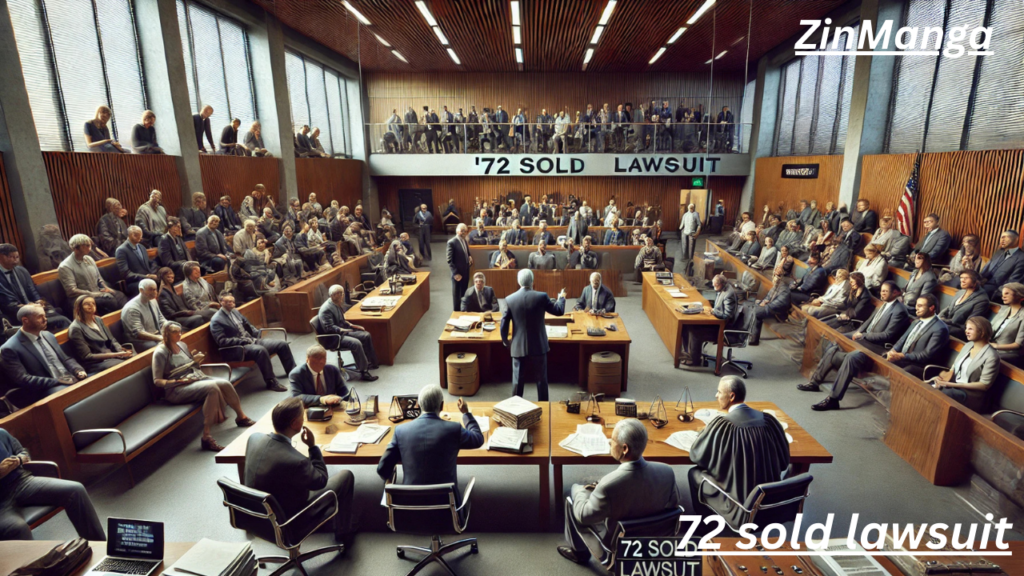
The company’s operational model revolves around marketing properties to generate immediate interest, thus creating a competitive bidding atmosphere. Homeowners benefit from the speed of the sale, while buyers are attracted by the urgency and competitive nature of the process. This distinctive approach sets 72 Sold apart from traditional real estate agencies, which often require a longer timeline to finalize transactions.
The Allegations Against 72 Sold
The 72 Sold lawsuit centers on allegations of misleading and deceptive marketing practices. Critics argue that the company’s promises of selling homes in 72 hours were not as straightforward as initially claimed, and that its marketing strategies failed to accurately reflect the complexities involved in the sales process.
In response, 72 Sold has countered with claims that partnering with the company allows homeowners to achieve above-average sale prices. These assertions are still featured prominently on the company’s website, suggesting that homeowners may sell their properties for 7.8% to 12% more than comparable listings.
However, many homeowners who were lured by these advertisements have discovered that the reality is far less enticing. Not only did transactions take longer than the promised 72 hours, but the offers received were often below expectations. Critics have further argued that 72 Sold attracted consumers by claiming to charge lower fees, while in actuality, its fees align closely with the conventional 5% to 6% commission rates charged by traditional agents.
Despite the plethora of allegations, 72 Sold has staunchly denied any wrongdoing, insisting that its promotional practices are transparent and based on accurate data.
Unique Selling Proposition (USP) of 72 Sold
The core selling point of 72 Sold lies in its promise of speed. The advertised 72-hour window has been marketed as a revolutionary change in the real estate landscape, appealing to homeowners eager to sell their properties without delay. Additionally, the company offers convenience by managing much of the sales process, from marketing to final negotiations.
The Rise of 72 Sold: Success and Popularity
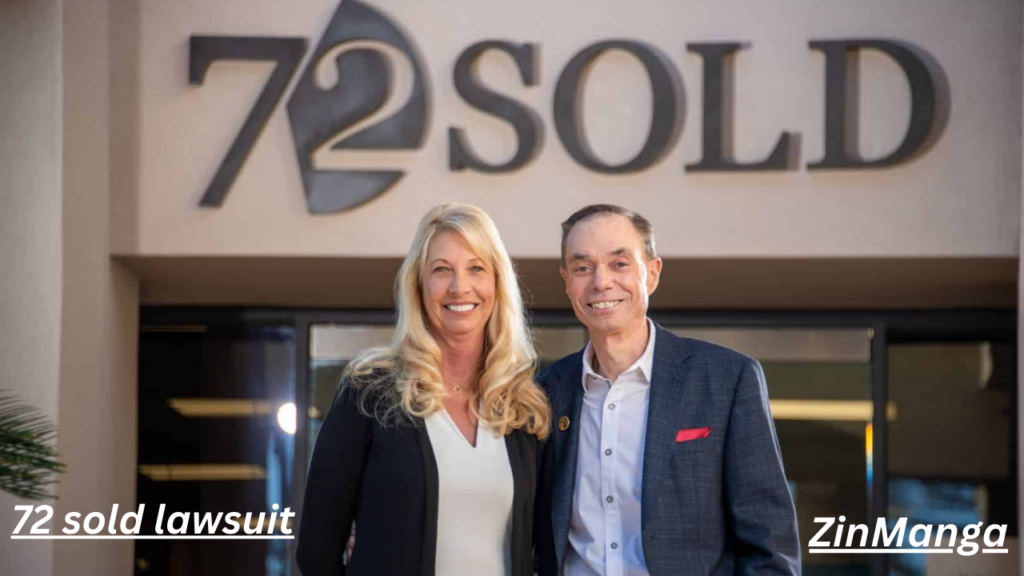
72 Sold experienced rapid growth within the real estate market, thanks in part to its aggressive marketing campaigns and customer-focused approach. Homeowners were impressed by the swift sales process, often sharing positive testimonials about their hassle-free experiences compared to traditional real estate methods.
Legal Analysis of the 72 Sold Lawsuit
The foundation of the 72 Sold lawsuit lies in consumer protection laws designed to safeguard individuals from deceptive business practices, which include both federal and state regulations. Although the specifics can vary from state to state, their overarching goal is to ensure that companies maintain transparency with consumers.
The plaintiffs in the 72 Sold lawsuit contend that the company fails to provide a comprehensive view of the home-selling process. Consumers have expressed frustration over the inaccuracies regarding the timeline of sales and potential hurdles, such as receiving offers below market value. Such misleading advertisements may breach consumer protection laws, exposing the company to significant liability.
In civil lawsuits, plaintiffs typically need to prove they experienced harm due to another party’s negligence or intentional misrepresentation. In the 72 Sold lawsuit, the plaintiffs allege financial harm stemming from decisions made based on incomplete or inaccurate information.
Marketing Strategies Behind 72 Sold’s Success
72 Sold made significant investments in digital marketing and TV advertising, focusing on homeowners who are frustrated with the slow pace of traditional real estate processes.The company also capitalized on social proof, showcasing positive customer testimonials that enhanced its reputation.
Understanding the 72 Sold Lawsuit
Despite its earlier success, 72 Sold now faces a lawsuit that could significantly impact its future. This legal challenge revolves around allegations concerning the company’s business practices, raising questions about its viability moving forward.
Potential Impact of the 72 Sold Lawsuit
Should the 72 Sold lawsuit proceed, the company could face substantial financial repercussions, possibly requiring compensation to past sellers for the disparity between their home sale prices and the property’s fair market value at the time of the transaction.
Even if 72 Sold successfully defends against the allegations, it may incur tens of thousands of dollars in legal fees. Additionally, the company has already suffered a loss of brand equity, which may complicate client acquisition efforts in the future.
Consumers are often unforgiving upon discovering that a brand has mistreated them or others. For example, Victoria’s Secret is still addressing the fallout from the “Karen” incident in one of its New Jersey stores in 2021.
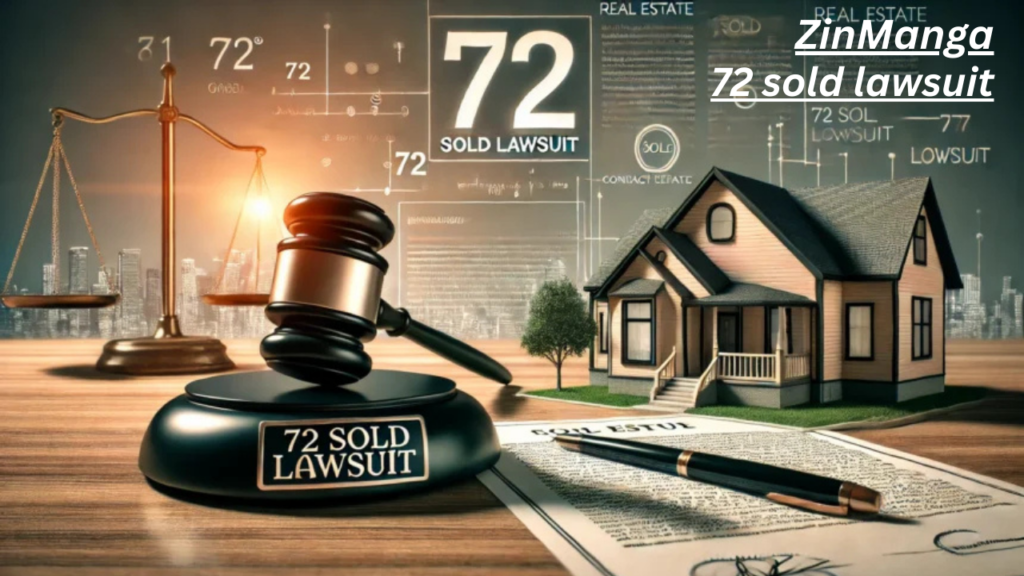
While 72 Sold might recover more quickly than Victoria’s Secret, doing so will require significant adjustments to its business model to regain consumer trust. The company has recently modified its promise from an initial 72-hour guarantee to an 8-day commitment. Its marketing team has also added clarifying language to mitigate risks associated with future lawsuits.
Ultimately, consumers must exercise due diligence when entering into agreements with businesses, particularly in high-value transactions like real estate. Trusting the wrong company can lead to significant financial losses and complicated legal disputes.
Industry-Wide Implications of the 72 Sold Lawsuit
It’s important to note that 72 Sold is relatively small within the real estate market, not ranking among the top ten companies in market capitalization and unlikely to break into the top fifty. However, the 72 Sold lawsuit is expected to create significant ripple effects throughout the real estate industry. As the situation unfolds, it may prompt increased scrutiny of marketing practices across the sector.
Companies like 72 Sold, which rely heavily on aggressive advertising, may need to reevaluate their messaging to avoid similar legal challenges. The allegations against 72 Sold have gained added attention due to the high-profile lawsuit involving the National Association of Realtors (NAR).
This case is likely to influence consumer behavior as well. Many people are already skeptical of the buying and selling processes, particularly regarding the high fees involved. The issues raised by the 72 Sold lawsuit will only exacerbate these concerns.
The reality is that numerous consumers are increasingly disillusioned with the real estate industry. The future landscape remains uncertain, but the 72 Sold lawsuit will undoubtedly affect consumer perceptions of real estate transactions.
Parties Involved in the Legal Dispute
The 72 Sold lawsuit involves several plaintiffs, including former clients and competitors, who claim that the company engaged in deceptive practices or failed to comply with real estate regulations. While the exact details of the allegations are still being examined, they primarily focus on the transparency and legality of 72 Sold’s business operations.
What Triggered the Lawsuit?
Complaints about 72 Sold’s marketing strategies and assertions regarding its capacity to deliver on promises appear to have triggered the lawsuit. Some customers felt misled by the assurances of rapid sales, while others raised questions about the transparency of the bidding process.
Key Legal Arguments in the 72 Sold Lawsuit
The ongoing 72 Sold lawsuit has sparked significant debate. Plaintiffs contend that 72 Sold has made deceptive promises regarding its services, potentially breaching consumer protection laws. Conversely, 72 Sold asserts that its business model is legitimate, claiming that any alleged discrepancies are isolated incidents or misinterpretations of its offerings.
Lessons for Industry Peers
One critical takeaway from the 72 Sold lawsuit is the vital importance of transparency in marketing. Other companies in the real estate sector can learn from this situation. Consumers are increasingly cautious and demand clarity about what they are signing up for and the costs associated with real estate services. Misleading consumers, even unintentionally, can result in severe legal ramifications and tarnish a company’s reputation.
Consumer Protection Considerations
Consumer protection agencies at both state and federal levels have ramped up their efforts in recent years. These organizations, working in tandem with the Department of Justice (DOJ), are increasingly holding companies accountable for their marketing practices and consumer treatment. A notable example is the DOJ’s ongoing lawsuit against Google, which addresses monopolistic practices that limit consumer choices. These high-profile cases not only demonstrate a commitment to protecting consumers but also highlight the legal protections that are becoming more prominent in the marketplace.
What’s Next for Real Estate?
The implications of the 72 Sold lawsuit may not significantly impact traditional brokerages; however, it poses serious concerns for 72 Sold and similar companies. Real estate businesses are currently grappling with challenges such as rising interest rates and a decline in buyer activity, resulting in layoffs and a need for strategic restructuring among firms like Opendoor.
For any business claiming to provide rapid transactions and reduced fees, it is imperative that the language used in marketing accurately reflects the process. Failure to maintain clarity could expose them to lawsuits akin to the 72 Sold lawsuit.
Legal Terminology Simplified
To navigate the complexities of the 72 Sold lawsuit, it’s essential to understand some legal terms frequently associated with the case:
- Misrepresentation: This occurs when one party provides false or misleading information to another, influencing their decisions based on incorrect facts.
- Plaintiff: The individual or group initiating a lawsuit against another party.
- Defendant: The individual or entity being accused in a lawsuit.
Impact of the Lawsuit on 72 Sold
The 72 Sold lawsuit has undeniably impacted the company’s reputation. While it continues operations, the legal challenges have cast a shadow over its business practices, leading potential clients to approach its services with caution.
Reactions from the Real Estate Community
The real estate industry has reacted in different ways to the 72 Sold lawsuit. Some experts defend the company’s innovative approach, while others criticize its perceived lack of transparency. Competitors have leveraged this situation to promote their services, emphasizing their compliance with legal standards.
Potential Consequences of the Lawsuit
If the lawsuit against 72 Sold is successful, the company may encounter significant financial penalties and long-term harm to its reputation. Moreover, this case could establish a legal precedent for other companies with similar business models, compelling them to reevaluate their operational practices.
Financial Repercussions for 72 Sold
In addition to incurring legal fees, 72 Sold may be liable for damages to affected clients. The company could also attract regulatory scrutiny, which might necessitate adjustments in its operational framework to align with legal standards.
Other Notable Real Estate Lawsuits
The 72 Sold lawsuit is a significant legal challenge in the real estate industry, one of the most noteworthy in recent years. This case follows the major National Association of Realtors (NAR) lawsuit and settlement, where the association and several large brokerages reached a multi-million dollar agreement with plaintiffs. As part of this settlement, the NAR and its member brokerages agreed to implement changes in their best practices and contractual agreements to enhance transparency.
One of the key changes resulting from the NAR settlement is that buyers must now sign a written agreement with their real estate agents before touring a home. While compensation for both buyers’ and sellers’ agents has always been negotiable, the new rules mandate that buyers’ agents disclose their commission in the written agreement. This was not consistently practiced across all states prior to the NAR settlement.
Together, the NAR settlement and the 72 Sold lawsuit could have profound implications for homeowners, buyers, and realtors alike. For consumers, it is crucial to stay informed about these legal matters to safeguard your rights when engaging with real estate service providers.
How the 72 Sold Lawsuit Impacts Consumers
The 72 Sold lawsuit underscores the complexities involved in real estate transactions and highlights the necessity of working with a trustworthy real estate professional. If you are considering selling your home, it’s essential to partner with an ethical real estate agent who prioritizes your best interests and is transparent about all associated costs.
While utilizing a quick-sell service for your real estate transaction may be convenient, it’s important to thoroughly review the details of any agreements to ensure you understand the terms. Remember, selling your home quickly often comes at a cost—typically, it means you may not receive the best market value for your property.
Settlement vs. Court Ruling: Possible Outcomes
The lawsuit involving 72 Sold may lead to one of two main results: a settlement or a complete court decision.
- Settlement: This scenario would involve 72 Sold agreeing to pay a certain amount without admitting guilt, allowing the company to sidestep a protracted court battle.
- Court Ruling: Should the case go to trial, the court could rule in favor of either party. An unfavorable ruling for 72 Sold could lead to significant consequences for the business.
How 72 Sold is Responding to the Lawsuit
In light of the 72 Sold lawsuit, the company has publicly defended its business practices. Additionally, 72 Sold has made adjustments to its marketing materials to provide clearer information about its services and promises to potential clients.
Lessons for Real Estate Companies from the 72 Sold Lawsuit
The 72 Sold lawsuit serves as a critical reminder for other real estate companies about the importance of transparency and regulatory compliance. Businesses need to ensure their marketing is accurate and that their operations adhere to real estate regulations to avoid facing similar legal issues.
Customer Trust and Lawsuits: Can 72 Sold Recover?
Rebuilding trust after facing a lawsuit is challenging, but not impossible. 72 Sold must undertake a dedicated effort to restore customer confidence, which may involve enhancing service offerings, increasing transparency, and actively managing its reputation.
Conclusion
The 72 Sold lawsuit raises significant questions regarding the legality and transparency of various business models in the real estate sector. As the legal proceedings progress, both real estate professionals and consumers will closely monitor the outcome and its implications for 72 Sold and the broader market.
FAQs About the 72 Sold Lawsuit
What is 72 Sold’s business model?
72 Sold provides an expedited home-selling service that guarantees the sale of properties in just 72 hours.
Why is 72 Sold facing a lawsuit?
The lawsuit against 72 Sold focuses on claims of deceptive marketing practices and insufficient transparency in their operations.
How has the lawsuit impacted 72 Sold’s reputation?
The legal action has raised concerns about the company’s business model, impacting customer trust.
What are the legal claims against 72 Sold?
The claims focus on potential misrepresentation and violations of real estate regulations.
How will the lawsuit impact the long-term operations of 72 Sold?
The long-term effects will depend on the lawsuit’s outcome, potentially leading to operational and marketing adjustments.
Are customers continuing to utilize the services of 72 Sold despite the ongoing lawsuit?
Yes, the company remains operational, though the lawsuit has caused some hesitation among prospective clients.
How is 72 Sold handling the legal challenge?
The company has released public statements and modified its marketing strategies in response to the 72 Sold lawsuit.
Could this lawsuit set a precedent for similar companies?
If the plaintiffs succeed, the case could have wide-reaching implications for other fast-track real estate companies.
What potential outcomes could arise from the lawsuit?
The lawsuit may result in a settlement or a full court ruling, carrying financial and reputational consequences for 72 Sold.
Is 72 Sold’s business model legal and compliant with real estate laws?
This is under scrutiny in the lawsuit, and the final ruling will clarify the legality of its business model.
You can see latest updates on: Zinmanga
